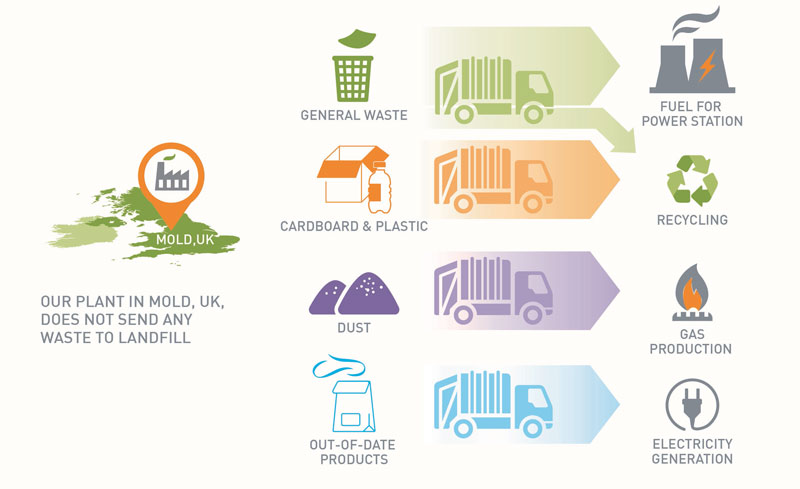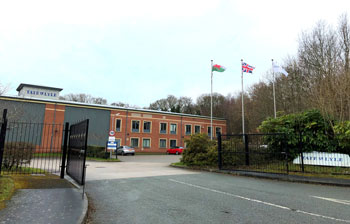Tate & Lyle is working towards reusing as much waste as possible across all of our sites globally. Our plant in Mold, UK, for example, sends zero waste to landfill – productive uses are found for everything!
What happens to the waste from our plant in Mold?
1 - General Waste
General waste is collected in a 35m³ compactor and taken to a waste recycling centre. Here it is sorted into recyclable and non-recyclable material. Any non-recyclable material is cubed into 30cm blocks, which are used as fuel by a power station in the nearby town of Runcorn, UK.
2 - Cardboard and plastic
Leftover cardboard and plastic is packed into mill-size bales and sold for recycling. The revenue from this offsets other costs related to waste management.
3 - Dust collectors
Powder collected in the dust collectors is sent to a food waste recycling plant in nearby Widnes, UK. Here the powder is passed through sealed, oxygen-free tanks – called anaerobic digesters – in which organic matter naturally breaks down to produce biogas. This gas is then supplied directly to the national power network.
4 - Obsolete products (out of spec or out of date)
These products go to an anaerobic digestion facility in Nottingham, UK, which produces electricity.
Why is recycling waste so important?
Waste materials that go to landfill simply rot and are never used again. This is not only poor economics, but it means that the earth’s resources are used up quicker than they would be if we reused what we have already harvested.
Landfill sites can also contribute to greenhouse gas emissions as some of them release methane and carbon dioxide directly into the atmosphere. This means that sending waste to be processed in anaerobic digesters, where methane and carbon dioxide is converted into renewable energy instead, can reduce our climate impact and environmental footprint.
A key pillar of our company purpose of Improving Lives for Generations is to care for our planet and help protect its natural resources. Better waste management is just one aspect of our strategy to improve our environmental performance and decrease our environmental impact.

